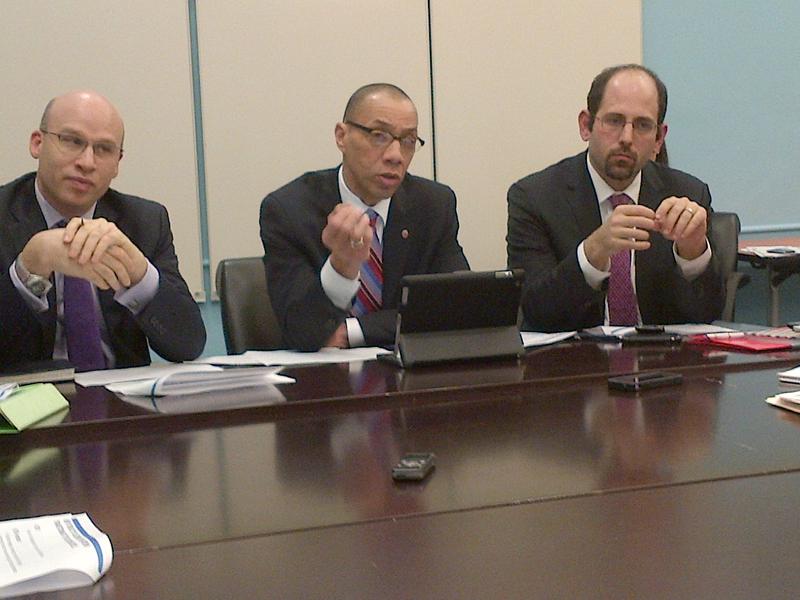
New York City's Department of Education chose which math and English textbooks it will recommend to its 1,700 public school principals to match new academic standards known as the Common Core.
The state adopted the Common Core in 2010. The new standards detail what students should know in every grade in order to graduate ready for college and careers. This year's state tests in grades 3-8 will be the first to reflect the new standards. High school tests will change in 2014.
"This is a big change," said Chancellor Dennis Walcott, for teachers and for students. "It's to prepare them to be college and career ready, able to compete for the new jobs that are out there and it's laying a foundation for them to be in true competition with the rest of the world."
But schools won't get the new materials until September, months after students take the first new exams. Walcott predicted the state exams "will be more difficult to pass at first" but that teachers and principals will soon become familiar with the material.
New York City has spent the past two years training teachers in the new standards. There's also an online library of classroom materials.
Before picking its new curricula, the D.O.E. said 40 programs from 20 different publishers were reviewed, by a team that included 50 teachers and 20 math and English experts. The city teamed up with other districts to make sure the publishers were really sticking to the standards of the Common Core.
"Publishers were trying to be very free in the use of slapping a sticker on existing materials saying Common Core aligned," said Walcott, who said materials from three different publishers were chosen after a rigorous review.
The city chose Houghton Mifflin Harcourt's "Go Math" program for elementary students, and Pearson's "Connected Math Program 3" for the middle grades. Principals could also elect to choose math materials that will be recommended by the state later this spring.
For English, the D.O.E. selected Pearson's "ReadyGen" for K-5, and Scholastic's "Codex" for grades 6-8. Schools can also choose the State Education Department's approved reading programs, "Core Knowledge," and "Expeditionary Learning."
Although New York State has a contract with Pearson for its math and reading tests, Walcott said the publishing company had no advantage when the city considered curricular materials. "They did not have a leg up" he told reporters at a briefing Thursday.
The city said it expects to spend up to $56 million on the new materials, largely through state textbook dollars. However, officials don't envision schools dumping old books into recycling bins this fall simply because the standards have changed.
"Schools that decide to replace their curriculum will discard some materials, especially in math," said Chief Academic Officer Shael Polakow-Suransky. "In literacy, a lot of the materials are books and those can be integrated into this curriculum - so I don't think they will be discarded."
He predicted the citywide gifted and talented schools are likely to stick with what they have.
Principals will begin seeing samples from the new materials next week. The D.O.E. showed reporters a fourth-grade sample from "Go Math" that required students take multiple steps when solving a problem involving fractions. "Fractions are the gateway to algebra," said Deputy Chief Academic Officer Josh Thomases, explaining why the Common Core emphasizes depth in each subject more than breadth. If students don't understand fractions they won't understand algebra; without algebra, he said, they won't get technology and science jobs.
The city has not recommended a new curriculum in almost a decade. Former Chancellor Joel Klein introduced "Everyday Math" and a teaching style known as "Balanced Literacy." But principals were given wide discretion in the books they chose. The city added an extra phonics component after an outcry from some parents and educators.
The president of the teachers union, Michael Mulgrew, issued a statement questioning whether the new materials will be sufficient.
"While it comes too late to help the kids for this year’s tests, the D.O.E.’s announcement is a welcome acknowledgment that teachers need curriculum that will help their students meet the demands of tests based on the new Common Core standards. We are concerned, however, with the cost of these new materials; how well they will actually match the Common Core standards; and whether the new curricula and their accompanying materials will be ready for the start of the new school year," Mulgrew said.
